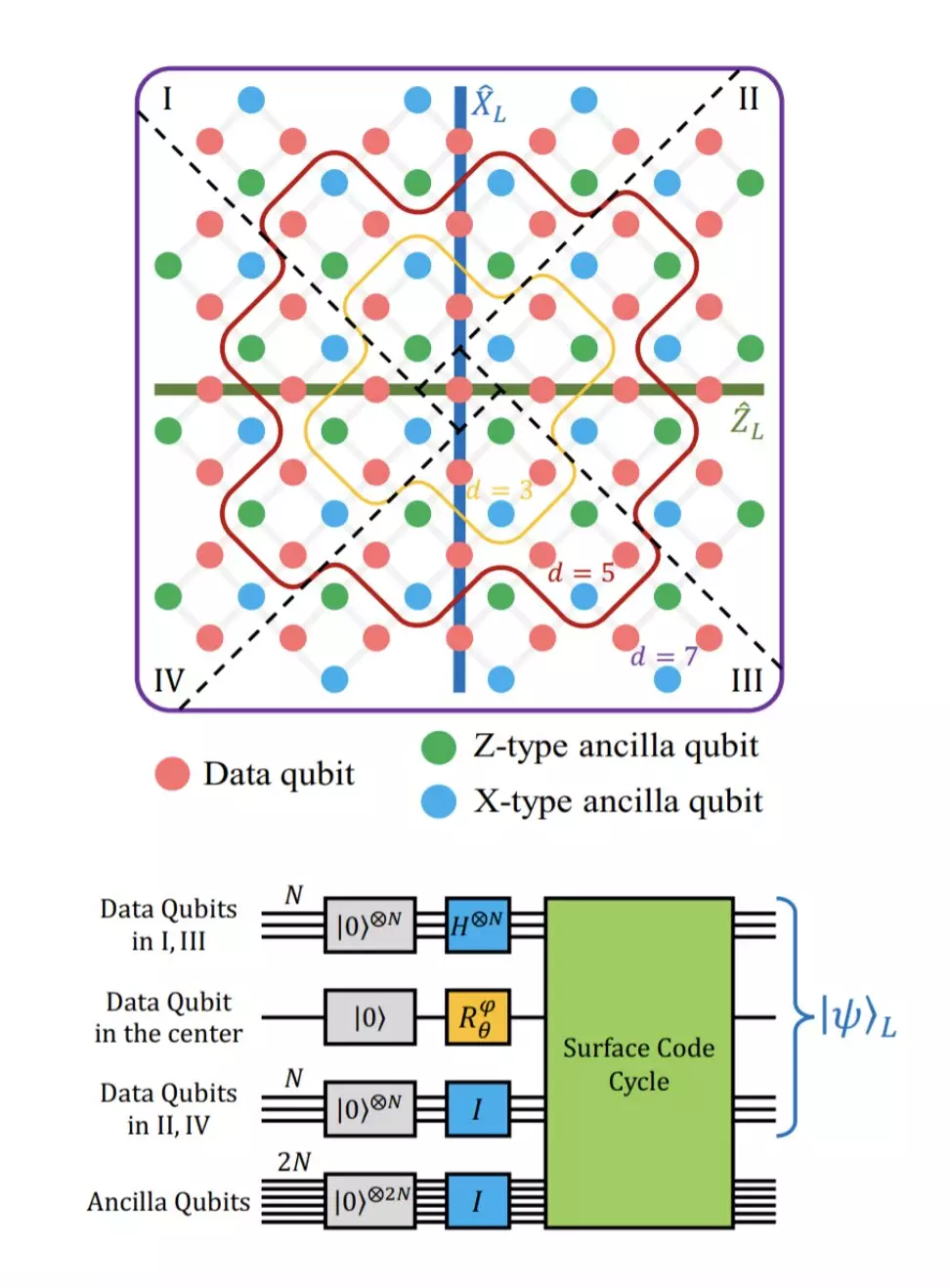Quantum computers have the potential to revolutionize computing by outperforming conventional computers on certain tasks. However, one major challenge that quantum computers face is noise, which can lead to computational errors. Engineers have been working on developing fault-tolerant quantum computing approaches that can mitigate the effects of noise and enable the scaling up of quantum computers. One common approach is the preparation of magic states that introduce non-Clifford gates. Recently, researchers at the University of Science and Technology of China, the Henan Key Laboratory of Quantum Information and Cryptography, and the Hefei National Laboratory demonstrated the preparation of a logical magic state with fidelity beyond the distillation threshold on a superconducting quantum processor.
The researchers’ long-term goal is to achieve robust, fault-tolerant, universal quantum computing. The preparation of logical magic states is a crucial step in implementing non-Clifford logical gates, which are essential for realizing fault-tolerant quantum computing. The researchers proposed a protocol to prepare high-fidelity logical magic states in superconducting quantum processors.
The researchers’ protocol outlines a simple, scalable, and experimentally feasible strategy to prepare high-fidelity raw magic states. The protocol involves injecting the state to be prepared into one of the qubits in the surface code and propagating the state information to the entire surface code to achieve logical state preparation. The choice of the inject position of the state and the initialization states of other qubits play a crucial role in the protocol.
To test the effectiveness of their protocol, the researchers applied it to the Zuchongzhi 2.1 processor, a 66-qubit quantum processor with a tunable coupling design. This design allows for the manipulation of the interaction between any two adjacent qubits, ensuring high-fidelity quantum gates even with a high degree of parallelism. Additionally, this design enables the expansion of qubit scale on a single processor.
When the protocol was implemented on the Zuchongzhi 2.1 processor, the researchers achieved promising results. They successfully prepared three logical magic states with high logical fidelities, surpassing the distillation threshold. The achieved logical fidelities were 0.8771±0.0009, 0.9090±0.0009, and 0.8890±0.0010, respectively. These fidelities were higher than the state distillation protocol threshold for H-type and T-type magic states, which were 0.859 and 0.827, respectively.
The successful preparation of high-fidelity raw logical magic states using the proposed protocol opens up possibilities for other research teams working with different superconducting quantum processors. The protocol could contribute to the realization of robust fault-tolerant quantum computing and the development of larger-scale quantum computers. The researchers plan to continue exploring two main research directions: enhancing the performance of a logical qubit by reducing physical manipulation error rates and increasing the number of encoded qubits and exploring further applications in quantum error correction.
The preparation of logical magic states with high fidelity is a significant step towards the realization of fault-tolerant quantum computing. The researchers’ protocol provides a viable strategy to generate high-fidelity logical magic states on superconducting quantum processors. With continued research and development, fault-tolerant quantum computing could become a reality, paving the way for more powerful and scalable quantum computers.


Leave a Reply